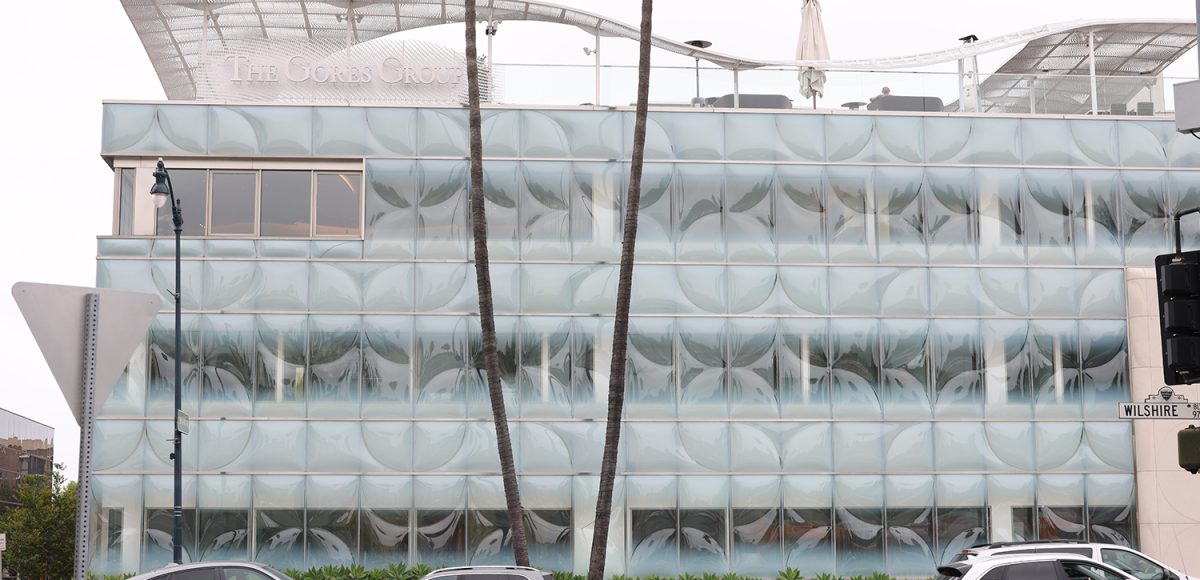In a contentious hearing on May 12, the Planning Commission issued a stern rebuke of the private club and co-working space Spring Place and crafted stringent limits on its 6,000 sq.-ft. rooftop space.
“You’ve had your last chances; you’ve had it many times again, and again, and again, and again,” said Planning Commissioner Myra Demeter, who presided as chair over the hearing. “We have pages of violations and pages of letters and pages of telephone calls and pages of different people contacting you, letting you know what is allowed and what is not allowed. And you continued again and again with making promises that you would do this, and you would do that, and we haven’t seen it.”
Planning Commission Chair Andy Licht recused himself from the hearing given his home’s proximity to the club and the fact that he is a member. Commissioner Thomas Hudnut also recused himself given the proximity of his home and office to the club.
Three members of the Commission ultimately agreed on strict limits to the rooftop uses of the club. Under the new provisions, which the Commission will vote on at its May 26 meeting, no more than 30 members can use the rooftop at a time, nor can the club offer food and beverage services on the roof. Additionally, the Commission limited rooftop hours to 9 a.m. to 8 p.m.
Located at the vertex of Wilshire and Santa Monica Boulevards in the Gores Group building, Spring Place offers members access to shared workspaces and amenities such as a bar, lounges, a restaurant, and programming and events. The exclusive club has one other location in New York’s Tribeca neighborhood.
The hearing focused on the decked-out rooftop space open to the club’s 630 members, who are each permitted to bring three guests. The Planning Commission previously granted Spring Place the right to hold “occasional” rooftop events that go no later than 10 p.m. and with 72-hour notice to the city. Furthermore, events could not have live or amplified music and could not be open to members of the public
The club has elicited complaints from neighbors alleging excessive noise from events and other violations since it opened in 2018. More recently, the city received documentation showing that the club advertised itself for use as a private event rental space, which would violate the club’s agreement with the city. The city also received documents showing Spring Place advertising events to members of the public and hosting social events including engagement parties and a bar mitzvah.
City staff warned Spring Place in January 2022 that the events violated its conditions of operation and to cease similar activity. But according to a report compiled by staff, the club persisted in holding events that appeared to violate city code, including a wedding celebration, a party with a DJ, a beauty event for a dermatologist and a Grammy’s party.
After the alleged violations, City Prosecutor Steven Rosenblit sent a letter to the club’s representatives in March warning them that their actions were “incurring criminal and civil liability.” If the club continued with the alleged wrongdoing, Rosenblit threatened possible “criminal prosecution against you for misdemeanor offenses” or a civil case. Failure to comply could also result in a loss of the club’s entitlements and legal consequences to the property owner, billionaire Alec Gores.
Given the legal issues at play, the hearing at times took on the air of a trial, with a legal representative for the club advising new CEO Christian Toraldo not to answer a question by Commissioner Peter Ostroff.
Toraldo, who became CEO in late December 2021, told the Commission that financial pressures related to COVID-19 led Spring Place to host events that “negatively impacted our neighbors.”
He said that he had attended a meeting with Rosenblit and members of the city’s code enforcement personnel to address concerns regarding two upcoming events. Furthermore, he reported asking the City Council “to develop a program to ensure that Spring Place remains in compliance with the conditions governing our operations.”
Commissioners expressed skepticism at the efforts to signal a change in direction.
“I’m very disappointed in what I’ve seen over the last two years. I’m extremely disappointed of what has been alleged over the last three or four months since the new team has been in place,” said Commissioner Gary Ross.
The years of issues and assurances had clearly taxed the faith of the Commission. Ostroff quoted from a letter to city staff by a lawyer for Spring Place in 2019 saying that prior leadership “did not fully understand how to be in compliance with the conditions of approval” and that “missteps were made as with any new business.” But the letter promised that “under new leadership, Spring Place is now well versed in its conditions of approval.”
“We have heard this before,” Ostroff said. “We thought this was going to be a great place and it turned out to be a disaster for the neighborhood [and] for the city.”







